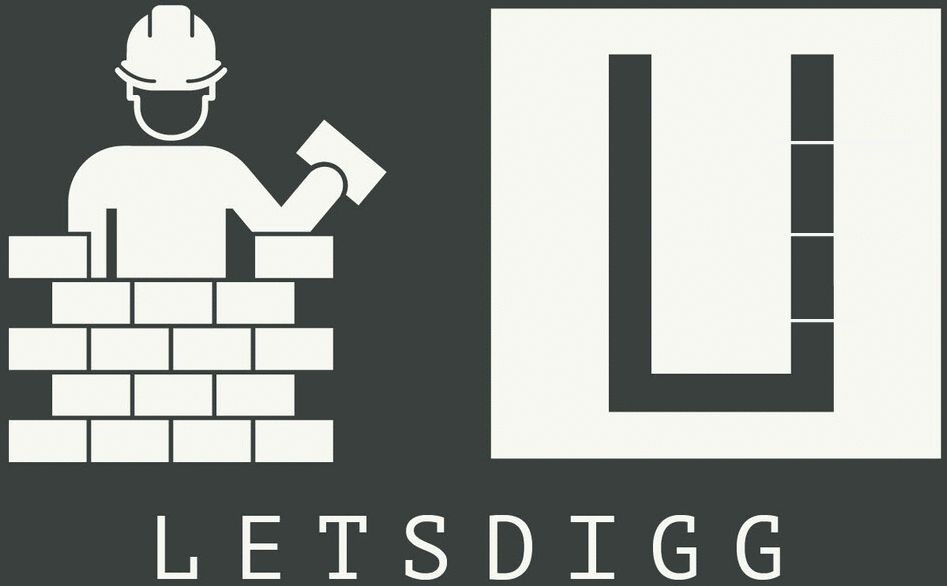
The real estate market in India has witnessed tremendous growth in recent years, with many individuals aspiring to own their own homes or Investment properties. However, it is crucial to understand the true cost of owning a property in India before taking the plunge. From initial costs to ongoing expenses and unexpected financial burdens, being aware of the complete financial picture is essential for a successful and stress-free property ownership experience.
Understanding the true cost of owning a property in India is crucial to avoid financial surprises and make informed decisions. Many first-time property buyers tend to focus solely on the purchase price, failing to consider the various expenses associated with property ownership. By comprehending the complete financial implications, individuals can plan their budget effectively and ensure a smooth ownership journey.
This article aims to provide readers with an analytical perspective on the true cost of owning a property in India. By delving into various cost factors and expenses, it seeks to empower individuals with valuable insights to make informed financial decisions.
Initial Costs of Property Ownership
Property Registration and Stamp Duty
Property registration refers to the legal process of recording a property transaction with the appropriate government authority. It establishes the buyer’s lawful ownership rights. Stamp duty, on the other hand, is a tax levied by the state government on the purchase or transfer of property. The amount is calculated as a percentage of the property’s value and varies across different states in India.
Several factors impact the registration and stamp duty costs. These include the property’s location, its market value, the type of property (residential, commercial, agricultural), and the gender or category of the buyer (e.g., women, senior citizens, first-time buyers). Understanding these factors helps individuals estimate and plan for the associated expenses.
Down Payment and Home Loan Processing Fees
The down payment is the initial amount paid by the buyer to the seller while purchasing a property. It represents a percentage of the property’s total value and is not covered by the home loan. The down payment plays a significant role in determining the loan amount, interest rate, and the buyer’s eligibility for a home loan.
When applying for a home loan in India, financial institutions charge processing fees. These fees cover the administrative costs associated with loan processing, document verification, and credit appraisal. It is essential for potential property buyers to consider these fees while evaluating their affordability and loan options.
Legal and Documentation Charges
Legal and documentation charges encompass the fees paid to legal professionals and government authorities for verifying property documents, conducting due diligence, and preparing legal agreements, such as sale deeds or lease agreements. These charges are incurred during the property purchase process and are critical to ensure a legally secure transaction.
Legal and documentation charges may include lawyer fees, notary fees, documentation charges for agreements, and charges for obtaining necessary certificates or clearances. These expenses contribute to the overall cost of property ownership and vary based on the complexity and value of the property transaction.
Ongoing Expenses
Home Loan EMIs (Equated Monthly Installments)
EMI, or Equated Monthly Installment, is the fixed amount paid by the borrower to the lender each month towards repaying the home loan. It consists of both principal and interest components. The EMI amount is calculated based on the loan amount, interest rate, and tenure of the loan.
Several factors influence the calculation of home loan EMIs. These include the loan amount, interest rate, loan tenure, and the type of interest rate (fixed or floating). By understanding these factors, borrowers can estimate their monthly financial commitment and plan their budget accordingly.
Property Taxes and Municipal Charges
Property taxes, also known as house tax or property assessment tax, are levied by local municipal bodies or panchayats. These taxes serve as a source of revenue for the maintenance and development of public infrastructure and services. The property tax amount is determined based on the property’s assessed value and the applicable tax rate set by the local governing body.
In addition to property taxes, municipal bodies may levy additional charges for services such as water supply, sewage, garbage collection, and street lighting. These charges contribute to the overall ongoing expenses of owning a property and vary across different regions.
Maintenance and Repair Costs
Regular maintenance is crucial for preserving the condition and value of a property. It includes tasks such as painting, plumbing repairs, electrical maintenance, pest control, and routine servicing of fixtures and appliances. Neglecting maintenance can lead to more significant problems in the long run, resulting in higher repair costs.
Property owners should allocate a portion of their budget for repairs and renovations. Unexpected repairs can arise due to wear and tear, structural issues, or accidents. By setting aside funds for such contingencies, property owners can handle unforeseen expenses without derailing their financial stability.
Society or Apartment Maintenance Charges
For properties located in residential complexes or societies, residents often pay maintenance charges to the housing society or the residents’ welfare association. These charges contribute to the maintenance and management of common areas, facilities, security services, and other amenities provided within the society.
Maintenance charges typically cover services like cleaning of common areas, security personnel salaries, repairs and maintenance of elevators, generator backup, landscaping, and maintenance of amenities such as swimming pools, gyms, or community halls. The charges vary based on the facilities and services provided by the society.
Utilities and Services
Electricity, Water, and Gas Charges
Electricity, water, and gas charges are recurring expenses associated with property ownership. These costs are based on actual consumption and vary depending on factors such as the property’s location, the size of the property, and the consumption pattern of the occupants.
To minimize utility expenses, property owners can adopt energy-efficient practices such as using LED bulbs, optimizing water usage, investing in energy-saving appliances, and ensuring proper insulation. These measures not only reduce costs but also contribute to environmental sustainability.
Internet and Cable Charges
Internet and cable charges are additional expenses incurred by property owners for accessing internet services and cable television. The costs vary based on the service provider, the chosen plan, and the desired speed or channel package.
To save on internet and cable charges, individuals can explore bundled service packages, negotiate with service providers for better deals, or consider alternative options such as streaming services or over-the-air television.
Waste Disposal and Sanitation Charges
Waste disposal and sanitation charges are levied by local municipal bodies or private service providers for collecting and managing solid waste generated by households or commercial establishments. These charges contribute to the proper disposal and recycling of waste to maintain a clean and healthy environment.
Property owners can adopt waste reduction practices such as recycling, composting, and responsible waste management to minimize waste-related costs. Additionally, optimizing water usage and maintaining proper sanitation systems can reduce water and sewage charges.
Security and Common Area Maintenance Charges
In properties with shared common areas or gated communities, residents may bear the costs of security services, CCTV surveillance, access control systems, and the maintenance of common facilities like parks, gardens, or clubhouses. These charges ensure the safety and upkeep of shared spaces.
Depending on their skill set and availability, property owners can decide whether to handle maintenance tasks themselves or hire professionals. DIY approaches may save money, but complex or specialized tasks are best entrusted to trained professionals to ensure quality and safety.
Legal and Insurance Expenses
Property Insurance
Property insurance provides financial protection against risks such as fire, theft, natural disasters, and other unforeseen events that can damage or destroy the property. It safeguards the investment and provides peace of mind to property owners.
Insurance premiums are influenced by factors such as the property’s location, construction quality, value, occupancy status (self-occupied or rented), and the coverage amount sought. Property owners should evaluate different insurance options and consider the coverage, deductibles, and premiums before choosing an insurance policy.
Legal Fees and Documentation Charges
Engaging legal professionals is essential for ensuring a smooth and legally secure property transaction. Legal fees may vary based on the complexity of the transaction, the lawyer’s experience, and the services provided, such as title verification, document preparation, and registration assistance.
In addition to legal fees, property transactions involve various documentation charges, including stamp papers, notary fees, registration fees, and charges for obtaining necessary certificates or clearances. These charges contribute to the legal formalities and paperwork required during property ownership.
Renovation and Modification Costs
Renovation Expenses
Renovations can range from minor cosmetic updates to extensive remodeling projects. Costs depend on factors such as the scale of renovation, materials used, labor charges, and the desired quality of workmanship. Renovations can enhance property value and improve the overall living experience.
Planning and budgeting are crucial when considering renovations. Property owners should determine their renovation goals, prioritize areas that require attention, obtain multiple quotes from contractors, and explore financing options such as personal loans or home improvement loans.
Interior Designing and Furnishing Costs
Interior designing and furnishing costs encompass expenses related to furniture, fixtures, decor, and interior design services. The costs can vary significantly based on individual preferences, design complexity, the scale of the project, and the quality of materials chosen.
The cost of interior designing is influenced by factors such as the size of the property, the chosen design style, the complexity of customization, the quality of materials and finishes, and the involvement of professional designers. Property owners should establish a budget, seek multiple quotes, and balance aesthetics with affordability.
Unexpected Expenses
Emergency Repairs and Maintenance
Unexpected repairs and emergencies can arise due to issues such as plumbing leaks, electrical faults, roof damage, or natural disasters. Property owners should be prepared to handle such situations promptly and have a contingency fund to cover the associated expenses.
Having an emergency fund is crucial to mitigate the financial impact of unexpected repairs or emergencies. Property owners should set aside a portion of their income regularly to build a fund that can be accessed when needed, ensuring they can address urgent repair needs without financial strain.
Natural Disasters and Insurance Coverage
India is prone to natural disasters such as floods, earthquakes, cyclones, and storms. Property owners should review their insurance policies to understand the coverage provided for such events and consider additional coverage if necessary. Insurance can help in recovering from property damage caused by natural disasters.
While insurance provides financial protection, taking proactive measures to minimize risks is equally important. Property owners should assess the vulnerability of their property to specific natural disasters and take appropriate precautions, such as reinforcing structures, installing safety features, or following local disaster preparedness guidelines.
Conclusion

Owning a property in India entails various costs beyond the initial purchase price. From registration and stamp duty to ongoing expenses such as taxes, maintenance charges, and utilities, property ownership requires comprehensive financial planning.
Thorough financial planning is essential for property ownership in India. It helps individuals anticipate and manage the true cost of owning a property, ensuring a sound and sustainable financial future.
Given the complexities and legalities involved in property transactions, it is advisable for individuals to seek professional advice from legal experts, financial advisors, and real estate professionals. Their guidance can help property owners navigate the financial aspects and make informed decisions.
By understanding and considering the true cost of owning a property in India, individuals can embark on their property ownership journey with confidence, preparedness, and a realistic financial outlook.

